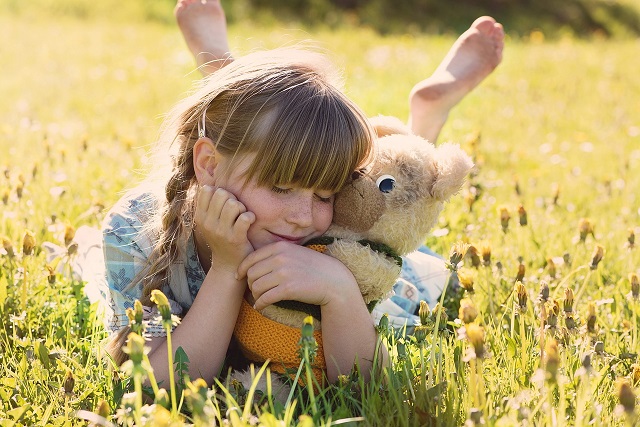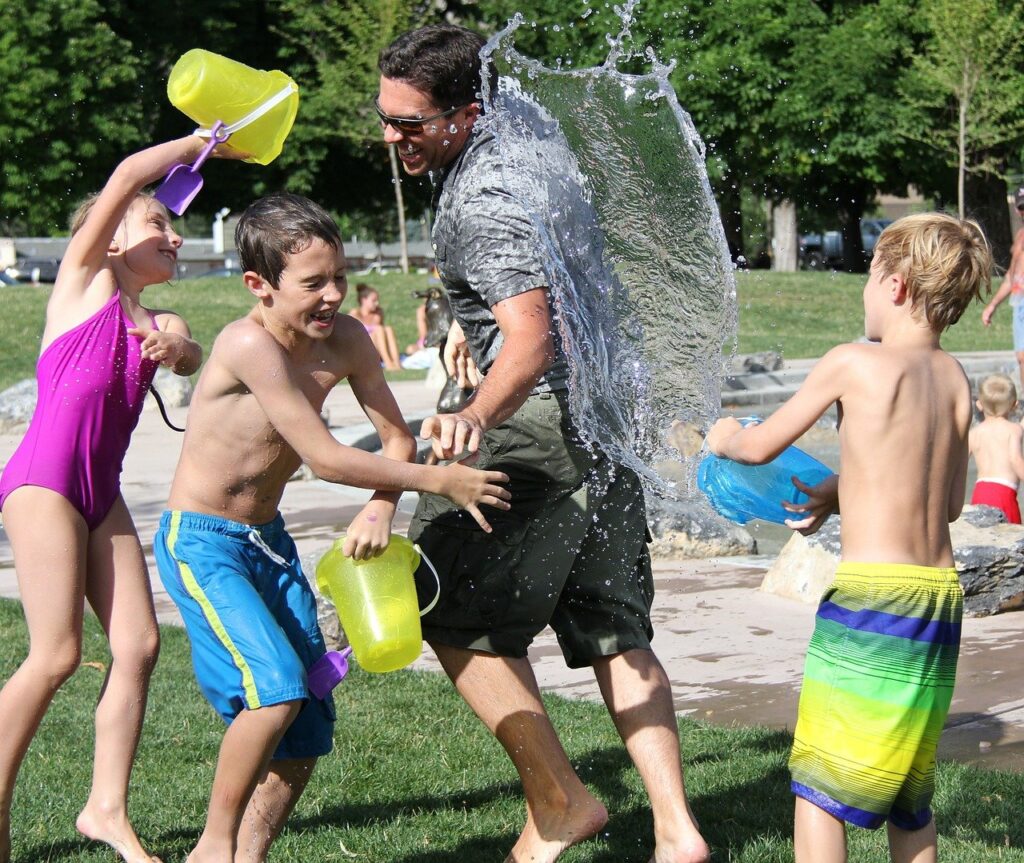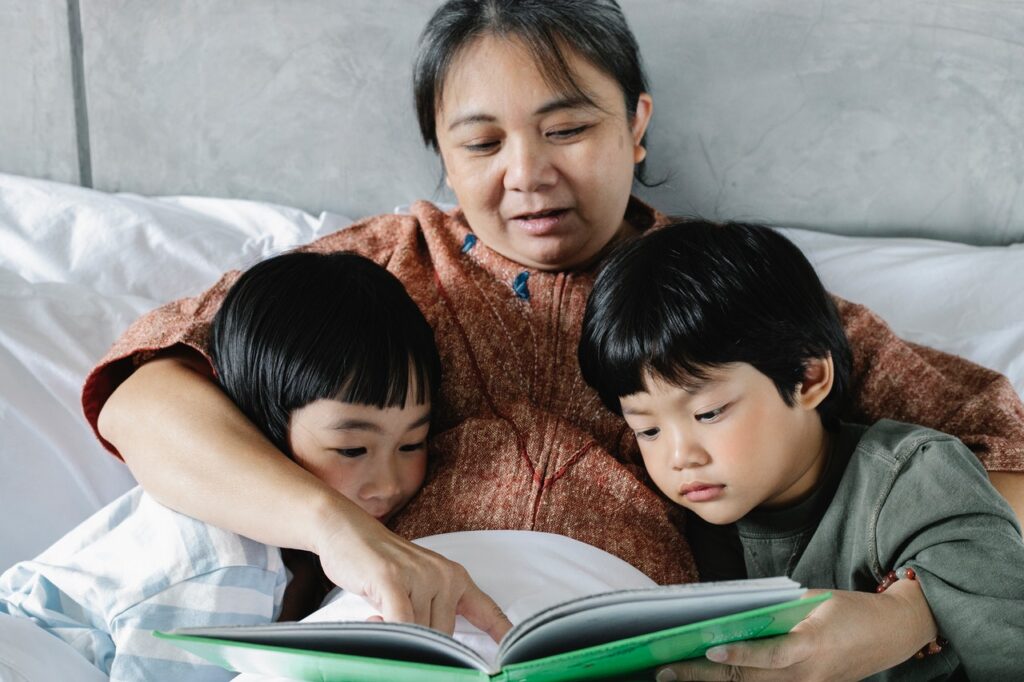Will happy children grow into happy adults? What makes children happy? How important is it? How do parents influence this?
Introduction to raising happy children
Family snaps of happy children with big, cheeky smiles is a scene played out in homes across the country. So what do we know about raising happy kids, and do they grow into happy adults? The short answer is yes; research shows that happy children grow into happy adults.
Happy children have a head start on their development in learning and socializing. A happy child is more likely to persevere with challenges, and in the long run, a happy child is more likely to finish high school and tertiary study.
As happy adults, they are more likely to succeed in work, relationships, and life in general.
Childhood trauma can limit a child’s happiness and well-being, affecting the quality of their physical and mental health.
Positive parents who can teach children to be happy are essential for growing happy kids into happy adults. Child care, teachers, and other family members can all be role models and may also guide or influence children.

Do happy children become happy adults?
Happiness is an emotion with elements such as joy, fulfillment, contentment, and satisfaction. Evidence suggests happy children do indeed grow up to be happy adults. Research has revealed that early experiences, such as wellbeing, remained relatively stable from childhood to adulthood. Childhood factors that influence adults in their 20s also influence adults in their 40s. So while we know a happy child can grow into a happy adult, the trick is, as a parent, how to help it happen.
What makes a child happy in life?
Child development research signposts the way to lay a solid foundation for what makes a child happy in life. Firstly, fulfilling Maslow’s Hierarchy of Needs is a good start. We all need the basics to thrive. Things like shelter, food, clothing, security, love, and a chance to be true to yourself represent a fertile potting mix to grow a happy child.
Beyond that, children can delight in the simplest of things, such as music, dance, butterflies, or why the sky is blue. Then there’s the interest of a favorite toy, or better still, the box it came in.
Children are also happy when they have a chance to challenge themselves. They progress and develop, falling and getting back up, only to fall again. Hugs and tears are wiped by an encouraging parent along the way. Happy children are making sure you’re watching while they do it. “Look at me, Mum,” is the catch cry of the happy child eager to try a new skill and be praised for having a go.
It’s finding hope and joy in the simple things that come naturally to children, but they need to be in a positive space that fosters happiness for joy to become a lifelong habit.

“If you make children happy now, you will make them happy twenty years hence by the memory of it”
– Kate Douglas Wiggin
How important is a happy family to the life of a child?
A happy home life goes a long way to instilling happiness in all its members, and children are no exception. Dysfunctional family dynamics like domestic violence have been shown to adversely affect children, which can stay with them for a lifetime.
Having families practice being happy is a good start. Also, teaching children how to build and maintain positive relationships with others is essential. Concepts like sharing, compassion, kindness are all excellent qualities to encourage in the family dynamic that help happy children grow into happy adults.
How does childhood affect adulthood?
As a child, the type of person we are has a strong bearing on the kind of person we are as an adult. The more often children experience happy emotions, the greater their wellbeing, now and in the future. A positive child has a better chance of learning and interacting with others because they will persevere. This carries through to adulthood.
The nature versus nurture debate comes into play. The environment we grow up in and the people who raise us play a big part in the outcome.
The knock-on effect is that happy children tend to have a higher level of wellbeing in adulthood. This translates into fewer mental health issues and better self-esteem. They are also more likely to finish high school and tertiary studies and are happier in work settings. Happy adults also can maintain positive relationships with family and friends and enjoy a more active social life.

Do happy parents make happy babies?
Happy parents do make happy babies. It’s essential to teach children to be happy by creating a positive environment where happiness is a priority. It’s not the intensity of the happiness that counts, but how often a child feels happy that carries through to adulthood. Part of that starts with the parents teaching their children how to be happy and deal with stress.
We’re all human, with good days and bad days. Sometimes it’s hard to let go of the world’s stress, but a parent that’s happy within themselves is a good start for nurturing a happy child that will grow into a happy adult.
It starts with having a positive outlook by being upbeat and optimistic. Rather than the worst, think the best of people. Try and find the silver lining in challenging situations. Be happy with what you have, rather than unhappy with what you don’t have. Be delighted in your child’s willingness and effort to have a go, irrespective of whether they succeed or not. Teach your happy children how to live life with the glass half full.
Parents creating a positive, happy environment goes a long way to role modeling happiness to a child, a taught skill they can carry with them for life.
What does a child need to grow up happy and healthy?
As mentioned earlier, to grow a happy, healthy child, start with the basics: good food, good company, a roof over their head. Help them manage their emotions and develop their emotional intelligence. It’s also crucial that they learn to get along with others, friends or not, and be kind and compassionate.
Give them free rein to have a go under a watchful eye. Children who only get praise for success or being smart realize this and tend to limit what they’re willing to try, so as not to fail in their parent’s eyes.
They also need your time and attention, particularly as a happy, positive role model. And, of course, while they have your attention, every happy child needs just one more story at bedtime!
As a positive role model, be responsible, have fun, share stories, watch movies, visit different places, introduce them to your culture and interests and show them what hard work is. Children like learning, laughing, and being involved and included.
“Children are not only innocent and curious but also optimistic and joyful and essentially happy. They are, in short, everything adults wish they would be”
Carolyn Haywood

How does childhood trauma affect happiness later in life?
When it comes to the effect of childhood trauma on happiness later in life, it can erode the child’s chance of reaching their full potential. Emotions such as anger and frustration can negatively impact learning and socialization early on, translating into reduced happiness and satisfaction in adulthood.
It’s a complex area, and the type of trauma dictates what the impact may be. Mental health issues, substance abuse, domestic violence, child abuse are factors that can negatively affect the development of a child, with that baggage being carried well into adulthood. For example, child abuse can lead to attachment disorders in adulthood, negatively impacting future relationships.
Biology is also a factor. It’s a sad truth that not everyone is born happy, and mothers with depression have a higher rate of unhappy children.
Suffice to say, childhood trauma can directly impact the chance of achieving happiness in adulthood and hurt their physical and mental health. It can also lead to increased high-risk behaviors and poor lifestyle choices such as smoking and alcohol consumption, with an increased risk of cancers and cardiovascular disease, increasing pressure on society and health care services.
Conclusion – Will happy children grow into happy adults?
Happy children have an easier time with learning and socializing. They are more likely to finish high school and tertiary study. This happiness continues into adulthood and underpins tremendous success and a sense of satisfaction and wellbeing with work, relationships, and socializing.
Childhood trauma can undermine a child’s chance of reaching their potential and limit their happiness and wellbeing. This can lead to unhealthy lifestyle choices and associated physical and mental health risks.
A happy home life and positive parents who can become role models on being happy are integral tools for growing happy children into happy adults, which paints a positive picture for their future.



